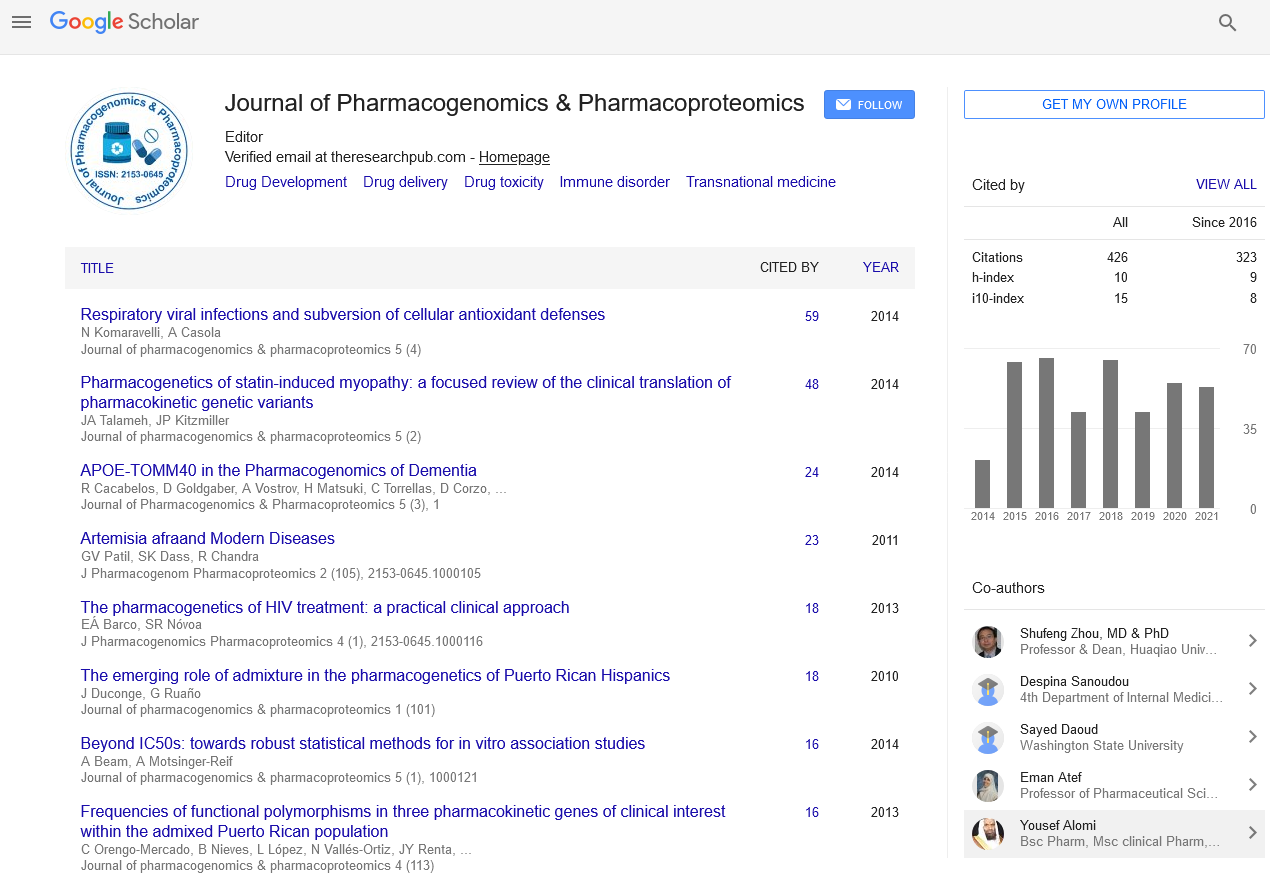Indexed In
- Open J Gate
- Genamics JournalSeek
- Academic Keys
- JournalTOCs
- ResearchBible
- Electronic Journals Library
- RefSeek
- Hamdard University
- EBSCO A-Z
- OCLC- WorldCat
- Proquest Summons
- SWB online catalog
- Virtual Library of Biology (vifabio)
- Publons
- MIAR
- Euro Pub
- Google Scholar
Useful Links
Share This Page
Journal Flyer

Open Access Journals
- Agri and Aquaculture
- Biochemistry
- Bioinformatics & Systems Biology
- Business & Management
- Chemistry
- Clinical Sciences
- Engineering
- Food & Nutrition
- General Science
- Genetics & Molecular Biology
- Immunology & Microbiology
- Medical Sciences
- Neuroscience & Psychology
- Nursing & Health Care
- Pharmaceutical Sciences
Identification of novel mutations in hemochromatosis genes by targeted next generation sequencing in Italian patients with unexplained iron overload
JOINT EVENT ON 6th European Conference on Predictive, Preventive and Personalized Medicine & Molecular Diagnostics & 2nd World Congress on Human Genetics
September 14-15, 2017 | Edinburgh, Scotland
Sadaf Badar
Università degli Studi di Verona, Italy
Scientific Tracks Abstracts: J Pharmacogenomics Pharmacoproteomics
Abstract:
Hereditary Hemochromatosis (HH), one of the commonest genetic disorders in Caucasians, is mainly associated to homozygosity for the C282Y mutation in the HFE gene, which is highly prevalent (allele frequency up to near 10% in Northern Europe) and easily detectable through a widely available first level molecular test. However, in certain geographical regions like the Mediterranean area, up to 30% of patients with a HH phenotype has a negative or non-diagnostic (i.e. simple heterozygosity) test, because of a known heterogeneity involving at least four other genes (HAMP, HJV, TFR2, and SLC40A1). Mutations in such genes are generally rare/private, making the diagnosis of atypical HH essentially a matter of exclusion in clinical practice (i.e., from here the "non-HFE" HH is excluded), unless cumbersome traditional sequencing is applied. We developed a Next Generation Sequencing (NGS)-based test targeting the five HH genes, and applied it to patients with clinically relevant iron overload (IO) and a non-diagnostic first level genetic test. We identified several mutations, some of which were novel (i.e. HFE W163X, HAMP R59X, and TFR2 D555N) and allowed molecular reclassification of "non-HFE" HH clinical diagnosis, particularly in some highly selected IO patients without concurring acquired risk factors. This NGS-based second level genetic test may represent a useful tool for molecular diagnosis of HH in patients in whom HH phenotype remains unexplained after the search of common HFE mutations.
Biography :
Sadaf Badar pursued her Undergraduate and Graduate Degrees in Biochemistry/Molecular Biology from Pakistan. She got a full scholarship from University of Verona, where she completed her PhD in Clinical Proteomics. She has many research publications, poster and oral presentations. Currently, she is serving as an Assistant Professor at Govt. College University Lahore, Pakistan.


